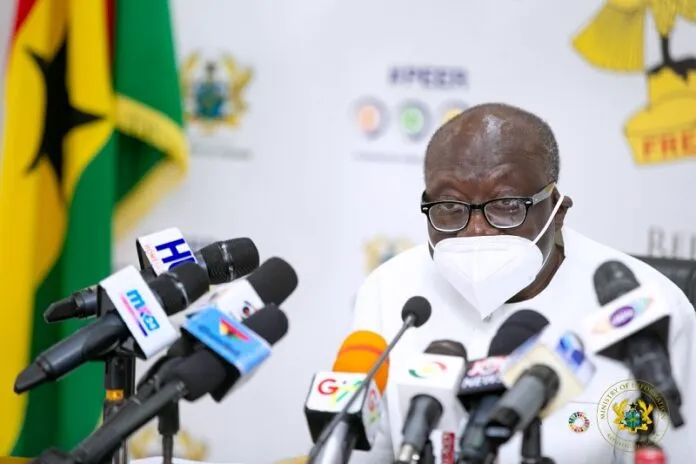Government engages the International Monetary Fund (IMF) under the proposed Enhanced Domestic Programme (EDP) which will be a 3-year fast-tracked macroeconomic stabilisation programme that seeks to restore investor confidence and achieve fiscal and debt sustainability.
According to a released by the Ministry of Finance, the programme is intended to be largely driven by a mix of robust structural reforms and revenue, expenditure, and financing policies.
“This will further enhance the recovery and transformation efforts by the government under the Ghana CARES ‘Obaatan pa’ Programme,” the statement disclosed.
As of March 31, 2022, Ghana’s exposure to the IMF was about SDR1.35 billion. Accordingly, a new facility from the Fund will add to the country’s existing debt, although, this is preferably a cheaper option than commercial loans.
In 2015, the extended credit facility (ECF) programme made available to the country 180 percent of its quota, which was equivalent to US$918mn released in equal tranches after every successful review. The loan facility, highly concessional – will likely be on a term of 0% interest rate, a moratorium on repayment for up to 5 years, and a repayment period of 20 years.
The proposed programme, which should span a minimum of 3 years, seeks to strengthen the government’s effort to restore investor confidence in the economy, thereby, regaining market access, boosting Development Partner (DP) disbursements, and unlocking other financing sources.
It further seeks to restore debt sustainability and macroeconomic stability to support green growth, economic transformation and job creation while protecting social spending; as well as strengthen the Central Bank’s Monetary Policy Regime; and build buffers to strengthen resilience to economic shocks.
The ministry also indicates that the programme will also enhance the recovery and transformation efforts by government under the Ghana CARES ‘Obaatan pa’ programme.
The Fund’s system of conditionality is designed to promote national ownership of strong and effective policies. In the case of Ghana, the ministry said the conditionalities are expected to be centred around EDF which the government is committed to enforcing.
How long the negotiations may take
The ministry said IMF-supported programme negotiations can be quick or protracted, largely due to the availability of data to assess the macroeconomic situation, the readiness and suitability of the government’s economic programme and the nature and feasibility of any prior conditions to be completed by the government.
It added that government has given strong signal of readiness to quicken and shorten the negotiation process by sharing relevant data as well as presenting its enhanced economic programme that will anchor the supported programme.
Challenges
Ghana’s economy is currently facing incessant inflation which reached 27.6 percent in May 2022; tightening financing conditions from a less accommodative monetary policy stance; as well as an exchange rate depreciation, which the Bank of Ghana reports at 24.5 percent, year to date, June 30, 2022.
The economy is also entangled with an elevated debt burden with high debt service. The public debt to GDP ratio increased from 54.2 percent in 2017 to 61.2 percent in 2019 to 74.4 percent in 2020 and increased further to 76.6 percent at the end of 2021 reflecting some key events over the period, such as COVID-19 spending interventions, the banking sector clean-up cost, and energy sector IPPs payments, as well as the cedi depreciation, which has further pushed the debt stock to GH¢387.9 billion, equivalent to 77.2 percent of GDP, recorded in April 2022, according to the Finance Ministry.










